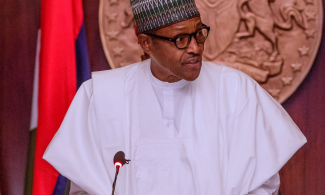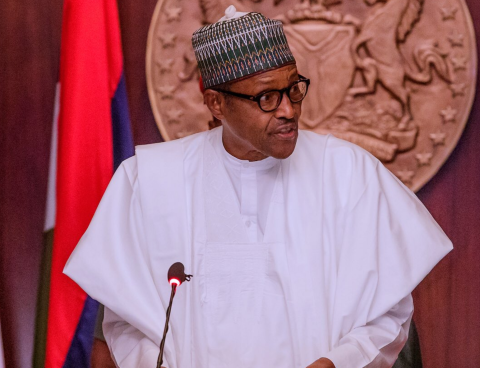
"Political corruption scandals are a dime a dozen in Nigeria, and corruption remains deeply rooted in both the public and private sectors. But if the president is leading by example, media reports indicate that few are following," said Campbell in a post on Council on Foreign Relations' website.

The prevalence of corruption in Nigeria remains very high in spite of the anti-graft war by the President Muhammadu Buhari administration, says a report.
According to the report, written by a former United States of American Ambassador to Nigeria, Mr. John Campbell, corruption has continued to grow in the country despite the federal government's anti-corruption campaigns and Buhari's example of not corruptly enriching himself.
"Political corruption scandals are a dime a dozen in Nigeria, and corruption remains deeply rooted in both the public and private sectors. But if the president is leading by example, media reports indicate that few are following," said Campbell in a post on Council on Foreign Relations' website.
He added: "But, compared to most of Nigeria’s elites, his personal fortune is very modest. Many former presidents and presidential aspirants have wealth in the tens of millions of U.S. dollars, and Nigerians routinely believe that holders of public office exploit their positions to enrich themselves. Buhari has so far largely avoided serious accusations of personal corruption, and his personal anti-corruption credentials remain strong."
The former American Ambassador to Nigeria noted that part of the basis of Buhari’s street popularity is his modest style of living, at least compared to other members of Nigeria’s elite.
As is required by law, in May 2019, the president submitted his asset declaration forms to the Code of Conduct Bureau.
According to Garba Shehu, a senior special assistant to the president on media and publicity, there is no significant change in Buhari’s assets since he last submitted a declaration following his 2015 election as president.
"This is credible," said Campbell, a Ralph Bunche Senior Fellow for Africa Policy Studies.
In 2015, the president’s listed assets that included “farms;” five homes and two mud houses; an orchard and a ranch with 270 cows, as well as 25 sheep, five horses, and a variety of birds; shares in three firms; plots of land in Port Harcourt and Kano; two cars; and $150,000 in a personal bank account.
By contrast, the Vice-President, Prof. Yemi Osinbajo, claimed he had $1.4 million in his bank account in 2015.
"In a country in which about half of the population lives in extreme poverty, Buhari is well off," Campbell explained.
"His private residence in Kaduna is masonry of size and finish appropriate for a retired army general with no business dealings on the side. Nevertheless, the government’s purchase of an official automobile costing an estimated $170,000 is a reminder of the perks of office."